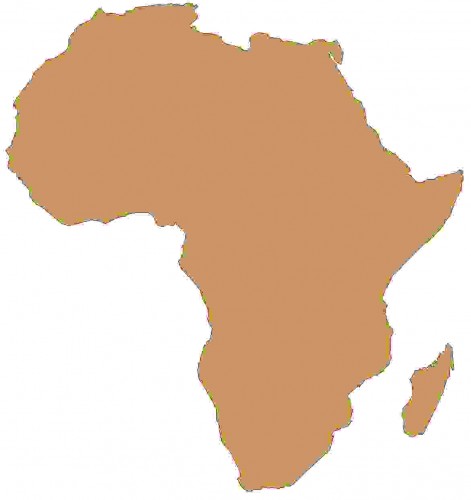Will Google’s Webp image format benefit Africa?

The original JPEG image measures nearly 1200px by 1200px with a file size of only 10.7kb. In this case, Webp would hardly produce noticeable benefits.
Eventually, the JPEG may head the way of the GIF, at least if Google has its way with its Webp (pronounced “weppy”) format. Last week, the company publicly unveiled a new compressed image format that could perhaps replace the gold standard that is JPEG. But, such a takeover will take time if 65% of the data on the Internet is composed of image files.
On the surface, Google’s advancement in imaging compression seems great for the world. After all, who doesn’t appreciate faster page load times? Google’s study of 1 million images shows that smaller images (those under 500kb) benefit the most from Webp and, on average, 39% more compression than JPEG. Under this scenario, a 125kb Webp image transferred over a 1Mbps connection will load 0.39 seconds faster than a JPEG file of similar quality. Africa, with its relatively limited connectivity speeds and burgeoning mobile industry, should especially take special notice. Even if a 10% shorter load-time is negligible for a nation with 10Mbps broadband speeds, such advances would be considered extremely advantageous to African nations that will not witness these speeds for years, if not decades.
ZDNet blogger Christopher Dawson acknowledges the benefits for Africa, or as he puts it those who “don’t live in a ‘broadband world,’” saying:
You might be accessing basic Internet on a phone, using dialup, or possibly using a satellite connection, perhaps on a shared computer. Streaming video isn’t something that gets taken for granted here and images that load 30% faster let people spend more time learning, working, and interacting and less time waiting.
Still, plenty of questions regarding Webp already have emerged.
- How accessible will Webp prove to be?
- How long will it take for the not-so-tech-savvy crowd to adopt the format?
- Furthermore, will the average computer user even notice the difference, considering the options for JPEG compression and the increasing penetration of broadband Internet?
- Twenty years from now, will we be able to say the benefits of creating a new standard image format outweigh (and continue to outweigh) resources used to implement this change?
To the average web user, Webp is identical to JPEG: both are manageable for simple sharing. As such, the general public simply will not care what their format is per se as long as it loads no slower than their current standard. Google, aware of this fact, is utilizing the trickle-down approach: present the technology to developers who will then tout its merits and implement it in their projects. In other words, most people won’t interact with a new format until their digital camera manufacturer decides to store images in the new format, or if Facebook alters its requirements. In the meantime, Google’s Chrome browser will soon support the Webp format, ostensibly in the hopes that Safari, and then Firefox follow suit. Also, it is worth noting that the format is open source (a concept proving to be useful in Africa), but is currently only accessible to those running Linux.
Sure, the new format will offer more bang for the buck, so to speak, and it will reduce load-time. Still, the gains are more about the intangibles of storage and file serving. The result: a more efficient, more sustainable, and less costly web-browsing experience. Even if the human mind cannot process the faster split-second of load time, at least less energy is consumed in the process.
Will Africa skip JPEG altogether? Don’t count on it. Old standards tend to linger while still proving useful. For example, the GIF image format, widely popular during the 1990’s due to its small file size is still suitable for low-color applications or animations. Current file formats will undoubtedly continue to be used as long as those in control of software and applications continue to see the need. African developers, let this be your call to action.












 Twitter
Twitter Facebook
Facebook Pinterest
Pinterest